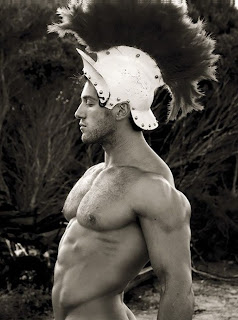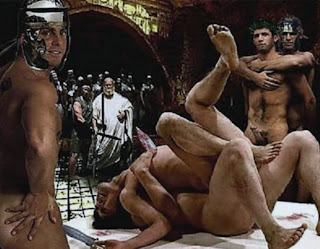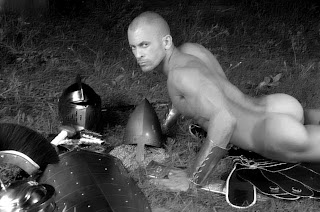 |
| Heroics by Paul Freeman |
 |
| Heroics by Paul Freeman |
300 (the movie) The Battle of Thermopylae
300 (the movie) The Battle of Thermopylae
300 (the movie) The Battle of Thermopylae
300 (the movie) Rodrigo Santoro as Xerxes
300 (the movie) The Battle of Thermopylae
300 (the movie) The Battle of Thermopylae
Alan Valdez
 |
| Achilles |
Achilles slays Hector
 |
| Amazon Warriors |
 |
| Amazon Warriors |
Greek soldiers
"[The Celts] wear bronze helmets with figures picked out on them, even horns, which made them look even taller than they already are...while others cover themselves with breast-armour made out of chains. But most content themselves with the weapons nature gave them: they go naked into battle...Weird, discordant horns were sounded, [they shouted in chorus with their] deep and harsh voices, they beat their swords rhythmically against their shields.” Written by Diodorus, a Roman historian
Celtic Warrior
Young warrior Ares. Roman copy of Greek original—the original is housed in the Museum of the Villa Canope at the Villa Adriana in Tivoli.
Young warrior Ares. Roman copy of Greek original—the original is housed in the Museum of the Villa Canope at the Villa Adriana in Tivoli.
Pre-Christian Celtic warriors are mentioned as going into battle naked
on a number of occasions. The Celts that invaded Italy in the 4th
Century BC fought naked, as did the Gaesati mercenary band that the Boii
and Insubres called upon late in the 3rd Century. The consul Manlius
Volso told his men that the Galatian tribes still fought naked in the
2nd Century, and as late as the 5th Century AD the Picts are still
alleged to have fought naked.
Some Celtic warriors used lime (like we use hair mousse today) to dress
their hair into spikes and tattooed their skin with blue dye, called
woad (the name Picts comes from the Latin for 'painted people')
Berserkers (or berserks) were Norse warriors who are reported in the Old Norse literature to have fought in a nearly uncontrollable, trance-like fury, a characteristic which later gave rise to the English word berserk. Berserkers are attested to in numerous Old Norse sources. Most historians believe that berserkers worked themselves into a rage before battle, but some think that they might have consumed drugged foods.
Valkyries in Norse mythology, (from Old Norse valkyrja "chooser of the slain") is one of a host of female figures who decide who dies and wins in battle. Selecting among half of those who die in battle (the other half go to the goddess Freyja's afterlife field Fólkvangr)
Valkyries in Norse mythology, (from Old Norse valkyrja "chooser of the slain") is one of a host of female figures who decide who dies and wins in battle. Selecting among half of those who die in battle (the other half go to the goddess Freyja's afterlife field Fólkvangr)
 |
| Berserker |
Greek soldier running
 |
| Heroics by Paul Freeman |
 |
| Heroics by Paul Freeman |
Marc Singer the Beastmaster




















































.jpg)

















